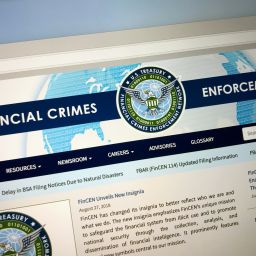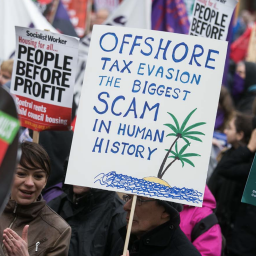Are you sitting on a trove of information about global kleptocracy? Do you like the idea of up to $5 million and witness protection? If so, a bipartisan group of US lawmakers has the bill for you.
Modeled on existing programs to reward people who give tips to the State department on terrorism, or to the IRS on tax evasion, the Kleptocracy Asset Recovery Rewards Act aims to help return assets stolen from foreign state coffers, by encouraging whistleblowers to talk to US authorities. The bill, introduced in the House on Feb. 27 by Democrat Stephen Lynch and Republican Keith Rothfus, would let the Treasury give asylum and cash to people who come forward with information about stolen assets that are stored in the US.
“In the last 15 years, only about $5 billion in corrupt assets has been repatriated. That is out of an estimated $20–40 billion that is lost annually due to corruption,” Lynch said in an emailed statement. “The goal of this proposed rewards program is to recover and return more of these funds to the people of the countries from which the funds were stolen.”
The bill would allow a maximum of $25 million to be paid out to kleptocracy whistleblowers per year, with the president able to approve more. An individual whistleblower can earn up to $5 million—or more if the Treasury secretary signs off on it. The cash would be taken from assets seized by the US government. It would also let the Treasury secretary provide protections for whistleblowers and their families. The bill doesn’t allow rewards to be paid to people employed by a foreign government, however.
The bill offers the kind of protection called for by the anonymous whistleblower who leaked the Panama Papers to German newspaper Süddeutsche Zeitung, instead of to the government. “Until governments codify legal protections for whistleblowers into law, enforcement agencies will simply have to depend on their own resources or on-going global media coverage for documents,” he wrote in a 1,800-word statement about the leak.
The US is a haven for laundered money from foreign countries, and ranks second on a world list of secrecy jurisdictions by anti-corruption NGO the Tax Justice Network. According to the organization, America’s complicity in a system of global corruption drains critical resources out of developing countries—for every dollar Africa receives in foreign aid, it loses between three and ten dollars (pdf, p.63) to money being magicked out of the country.
The system also harms America. Its weak anti-money laundering protections have allowed Russian trolls to buy social media ads via Paypal in their 2016 election disinformation campaign, the Iranian government to rake in millions in rent on a Manhattan skyscraper it secretly owned, and a $2.5 billion human trafficking industry selling children for sex through anonymous companies based in Delaware.
Anti-corruption NGOs welcomed the bill, while noting that much work needs to be done to stop money-laundering in the first place. “We also need to stay laser focused on cracking down on the kind of corporate anonymity allowed in the U.S. and elsewhere that enables corrupt individuals to steal and launder such ill-gotten gains in the first place,” said Mark Hays, lead anti-money laundering campaigner at Global Witness.
Corporate secrecy allows states like Delaware, Nevada, and Wyoming to function as internal tax havens. These let people to set up US shell firms and bring cash into the country from offshore with total anonymity. Bills aiming to tackle this by forcing companies to disclose their owners to law enforcement were introduced last year, and one had a hearing in the Senate Judiciary Committee last month.
A previous version of this bill was introduced in 2016 and picked up some bipartisan co-signatures, but didn’t go anywhere. Lynch’s office didn’t explain why they felt it had a better chance this time around.
Written by Max de Haldevang
US lawmakers want to pay up to $5 million for foreign corruption tips






